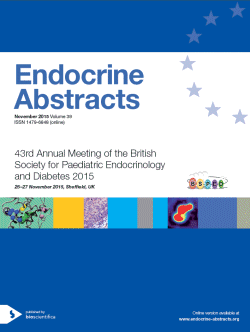Searchable abstracts of presentations at key conferences in endocrinology

Society for Endocrinology BES 2015
Edinburgh,
UK
02 Nov 2015 - 04 Nov 2015

2-4 November 2015, Edinburgh, UK
Further information



